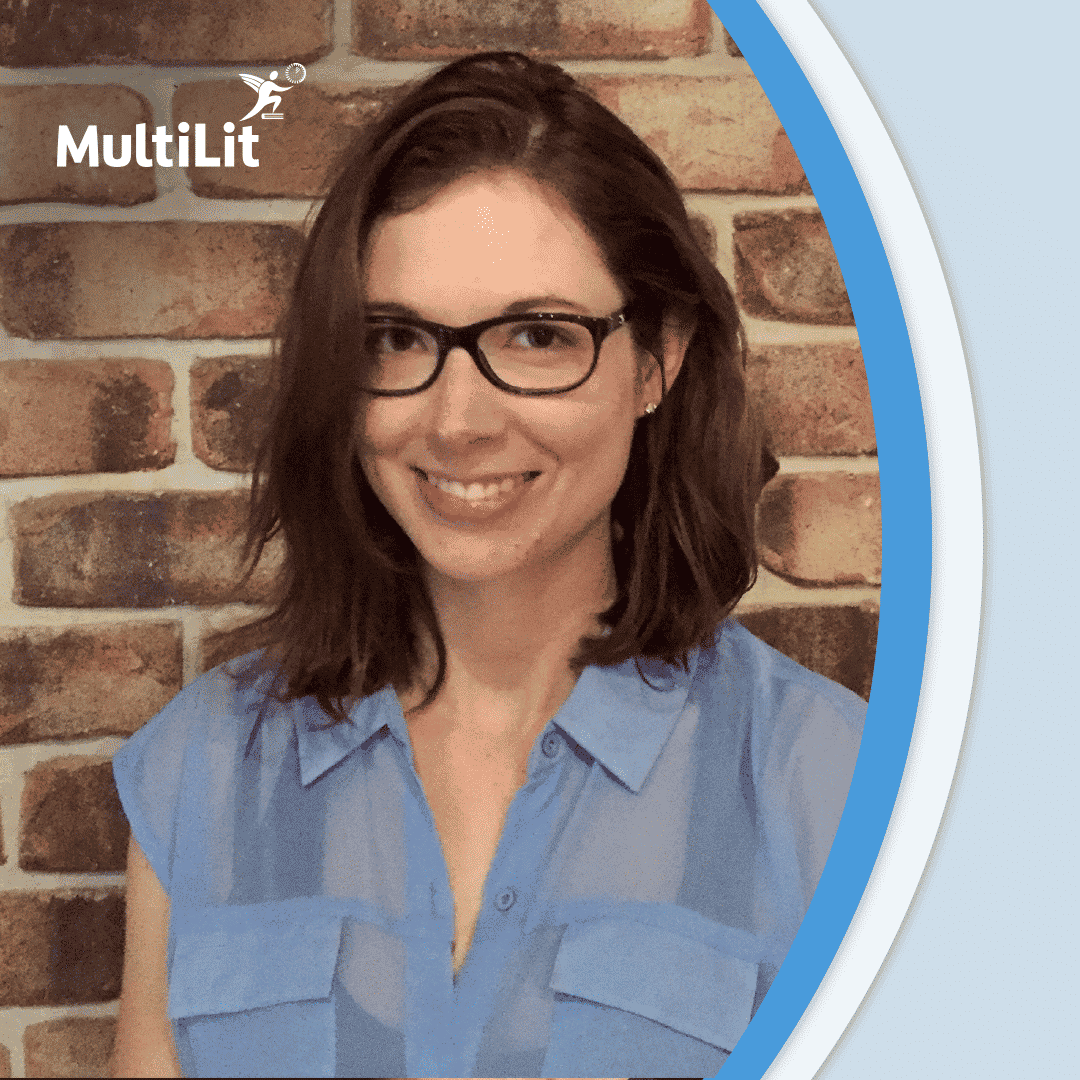Dr Nicola Bell
Postdoctoral Research Fellow, MultiLit Research Unit, BSpPath (Hons) PhD
Dr Nicola Bell has professional experience in literacy-specialised speech pathology intervention. She has completed her PhD on literacy development in children with cochlear implants and published several papers in the area. Her research interests extend to language and literacy development in all school-age children.
Learn more about her role with MultiLit.

How long have you worked for MultiLit?
Almost four years.
What inspired you to get into education?
It’s been a bit of a winding path to get to where I am now. I left high school thinking that I would be a primary school teacher, and so I began a Bachelor of Primary Education at The University of Queensland straight away. The dream, however, didn’t quite live up to the reality, and I left the degree halfway through my second year, after my practicum experiences showed me that teaching wasn’t really my jam.
What I enjoyed most during those 18 months was learning about learning and, with that in mind, I embarked on a Bachelor of Speech Pathology, with the goal of understanding more about how humans acquire language. I thought I would eventually end up as a clinical speechie working with children who had language difficulties. In my final year, I worked at a private speech pathology practice that specialised in helping children with dyslexia, and it was this experience that sparked my fascination with written language acquisition.
After completing the Bachelor’s degree, I ended up launching straight into a PhD, the topic of which was literacy development in children with cochlear implants. During that time, I enjoyed the practical work of sitting with the school-aged children who participated in my PhD research. Beyond that, though, I loved the process of engaging with research and science to answer questions about how best to help children learn to read and write. That continues to be what inspires me in my current role.
What are some of the key responsibilities of your role?
I work alongside the other members of the MultiLit Research Unit (MRU) to plan and organise trials of programs and assessments that are published by MultiLit. This means liaising with trial schools, analysing trial results, writing up those results in articles, contributing to other publications on literacy development, and helping to keep MRU articles organised and accessible for readers. Occasionally I get the fabulous opportunity to contribute to MultiLit’s Product Development team, by writing readers and picture books.
You’ve authored assessments, readers and picture books. What are some of the differences between those?
Assessments, readers and picture books all differ from one another in what the end user (i.e., teacher) is hoping to achieve by using them. The writing style has to reflect that. The purpose of administering an assessment is to determine what skills a student can demonstrate, and so the questions or items must be worded unambiguously and in a way that is directly related to the skill being targeted. The assessment manual also must contain clear and concise information that will, without waffle, help the administrator know exactly what the test does and how it is delivered and scored. There is definitely a formula that you work within, in order to say what you need to say in the clearest possible way.
There is also a structure that frames the writing of readers and picture books, but you can be a lot more creative in what content lives within that structure. And the structural constraints actually make for an interesting challenge in those cases. Teachers use decodable readers to help students practise applying their knowledge of what letter-sound correspondences they are learning in class. Hence, specific letter patterns must be repeated (and — if not yet taught — avoided), and words must be selected carefully during the writing process. On the other hand, teachers use picture books to help students develop their oral language, by exposing them to various vocabulary items and story themes. Here, the word spellings are less important than in decodable books, but there is still a narrative structure that must be adhered to so that the story is comprehensible, memorable and interesting.
Whatever the project, any writing and editing I’ve done for MultiLit has always benefited from the feedback of others. Conforming to given task constraints is not always entirely straightforward, and so I think the output from a solo effort will almost never be as good as that coming from a team.
What’s one thing you wish more people knew about literacy?
It still seems as though a lot of people think a child’s literacy skills are influenced solely by how much they are read to at home. This is wrong, and it’s also quite insulting to those parents of children with literacy difficulties, who may have spent many hours and dollars trying to provide the best support possible for their child. It’s also pretty insulting to teachers, who – based on the underlying logic – can have nothing to contribute to the acquisition of reading and writing skills. So I wish more people would acknowledge the important role of educators in this area.